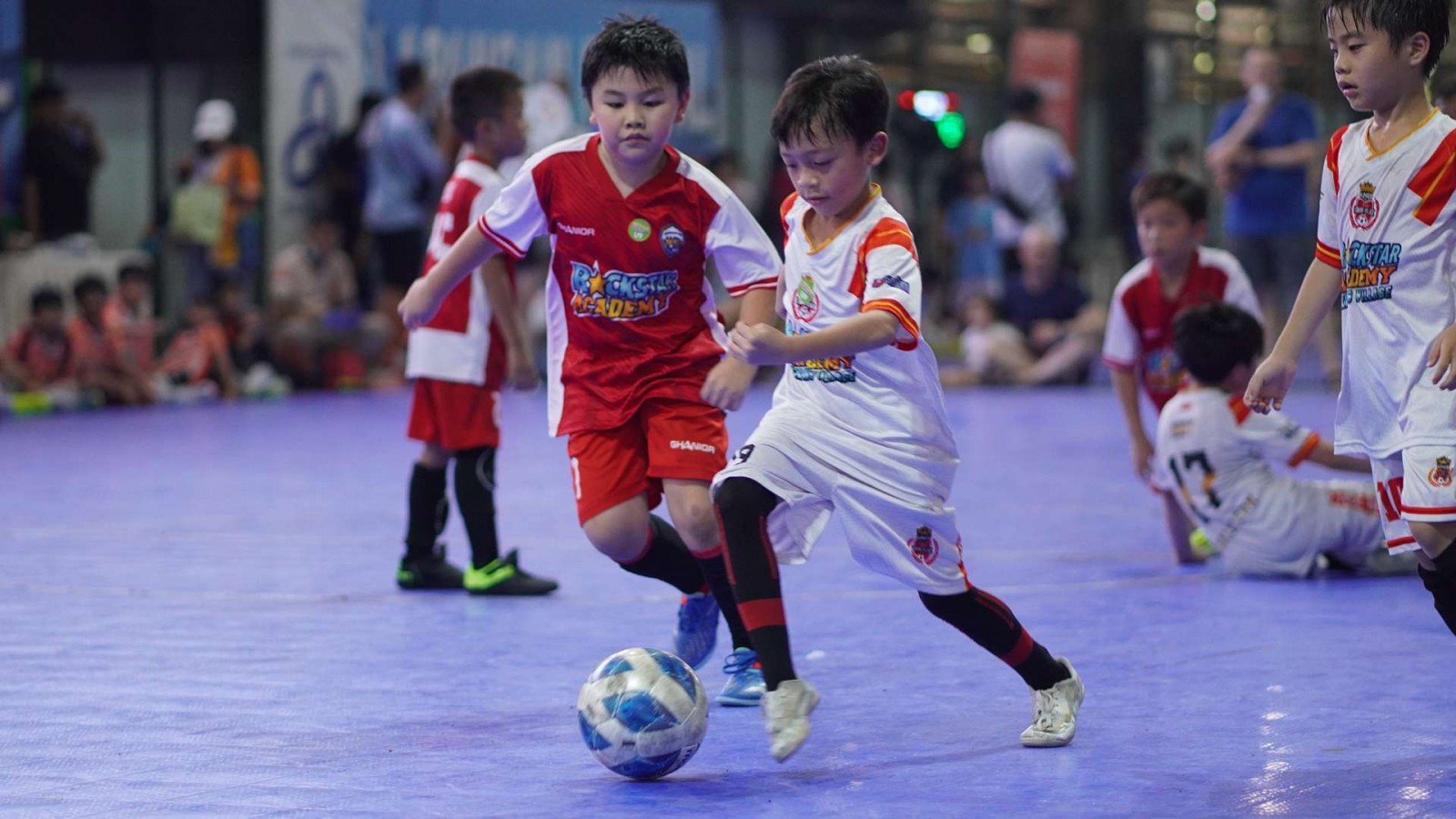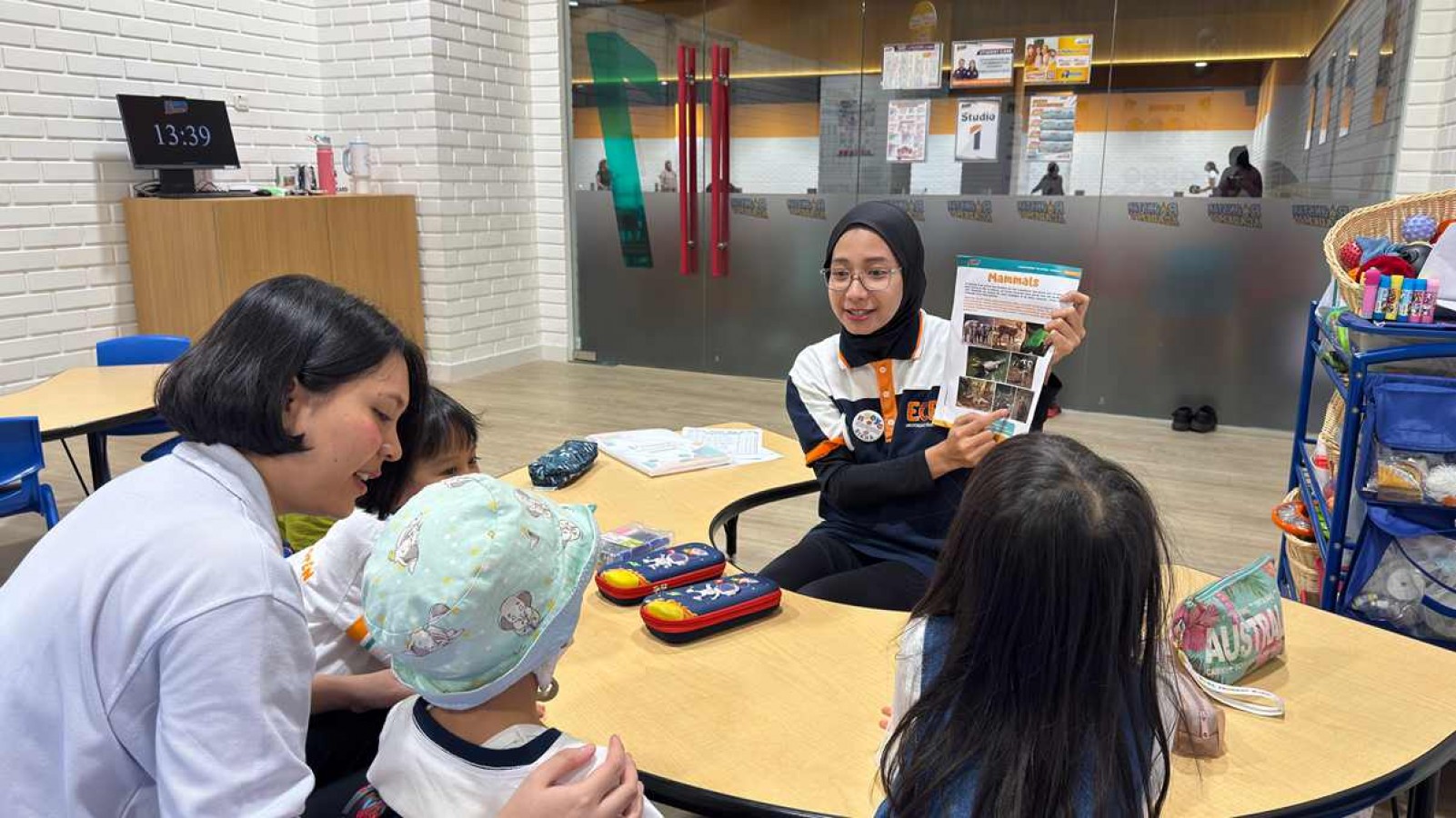Communication in Futsal: Practical Ways to Elevate Your Team’s Synergy

If you’ve ever played futsal, you know it’s fast, intense, and full of quick decision-making. But what really separates a good team from a great one is communication in futsal. It’s not just about shouting for the ball, but also about using smart verbal and non-verbal cues to stay connected as a team.
In this guide, we’ll break down why communication matters so much in futsal, how it works both verbally and non-verbally, and practical ways to improve it so your team synergy hits the next level.
Why Communication Is Important in Futsal
In futsal, good communication isn’t just a “nice extra”, but it can be the difference between winning and losing. Talking (and listening) on the court keeps the game flowing, the team connected, and the goals coming. Here’s why it matters so much:
1. Faster Decision-Making
Futsal moves fast, blink and the moment’s gone. Players often have just a split second to decide whether to pass, shoot, or dribble. A quick call from a teammate can point them in the right direction instantly, cutting hesitation and keeping the play alive.
2. Defensive Organization
With a smaller court, every inch of space matters. Communication helps the team stay organized. Players can call out who’s marking who, warning about open passing lanes, and spotting threats before they turn into scoring chances.
3. Support and Encouragement
Futsal can be intense, both physically and mentally. A shout of encouragement or a quick “I’ve got your back!” can keep energy high, morale strong, and focus sharp from the first whistle to the last.
4. Minimizing Errors
A missed signal can mean losing the ball or missing a perfect shot. Clear, consistent communication keeps everyone on the same page, reduces errors, and helps maintain control of the game.
Verbal Communication in Futsal
Talking on the court might seem small, but it makes a massive difference in how a team plays. In futsal, where everything happens fast, short and clear calls keep everyone connected. Here’s how verbal communication works in key situations:
A. Calling for the Ball
Let your teammates know you’re open. A quick shout like “Here!” or “Pass!” can draw their attention and start a play. Simple, clear, and loud enough to be heard over the game noise.
B. Defensive Alerts
Defenders should constantly talk. A sharp “Man on!” tells a teammate that pressure is coming, helping them react faster and avoid getting dispossessed.
C. Directing Movement
Players off the ball can guide the game without even touching it. Calls like “Switch!” or “Overlap!” tell teammates how to move and where space is opening up, making it easier to create chances.
D. Encouragement
Sometimes, the best communication is just a boost of morale. Saying things like “Good job!” or “We’ve got this!” keeps energy high, builds confidence, and helps the team stay in rhythm.
Non-Verbal Communication in Futsal
Sometimes, the best communication on the futsal court doesn’t involve words at all. Quick movements, subtle signals, and smart positioning can say just as much as a shout. Here’s how non-verbal cues keep the game flowing:
1. Eye Contact
A simple glance can speak volumes. Looking at a teammate can signal that you’re ready for a pass or show exactly where you want the ball. It also builds trust and your teammates know you’re paying attention.
2. Pointing and Gesturing
Pointing to an open space or goal area tells your teammate exactly where to deliver the ball. This is especially helpful during fast transitions or set plays when there’s no time to talk.
3. Body Positioning
Your stance says a lot. An open body position shows you’re ready to receive a pass, while turning your shoulders can indicate you’re about to make a run. Teammates pick up on these small hints.
4. Facial Expressions
Even small facial cues can make a difference. A quick nod, raised eyebrows, or a determined look can signal readiness, urgency, or confidence—without needing to say a word.
Attack and Defense Communication
In futsal, the speed of the game leaves no room for guesswork. Clear, quick communication keeps everyone synced and ready to react. Here’s how it works on both sides of the court:
A. Communication in Attack
When your team goes on the attack, quick moves aren’t enough—everyone needs to be on the same page. That’s where smart communication comes in.
- Calling for Support
When an attacker is outnumbered or under pressure, calling out “Back!” or “Help!” signals teammates to move in and offer passing options.
- Setting Up Plays
Short calls like “Through!” or “One-two!” tell teammates exactly what’s coming, making coordinated plays smoother and faster.
- Position Awareness
Attackers can guide each other to better positions. A shout like “Far post!” tells a teammate to take advantage of open space for a scoring chance.
- Counterattacks
Speed is everything in a counterattack. Commands like “Go!” or “Now!” kickstart the transition, keeping defenders on their heels.
B. Communication in Defense
Defense in futsal needs to fit perfectly. Communication is what locks everything in place.
- Man-Marking
Defenders use calls like “I’ve got him!” or “Switch!” to clarify assignments and avoid marking mistakes.
- Pressing Cues
Pressing is a team effort. Shouts of “Press!” or “Hold!” tell the team when to close down or when to stay compact.
- Anticipating Danger
Warnings like “Watch the line!” or “Cover the middle!” help defenders react early and close down threats before they develop.
- Goalkeeper’s Role
The goalkeeper is the defensive commander, with the best view of the court. They should constantly direct defenders with loud, clear instructions.
How to Improve Communication in Futsal
Getting better at communication in futsal is about making sure your message is clear, positive, and easy to understand. Whether you’re a coach, player, or just love the game, these futsal tips will help you level up how you connect on the court:
1. Consider Your Terminology
Not everyone will understand complex terms like “drop off” or “squeeze.” Use simple phrases that everyone can follow.
Saying “Move back,” “Push up,” or “Stay close to your player” works better, especially for younger or less experienced players.
2. Think About Body Language
Words aren’t everything and your body language matters too. A thumbs up, smile, or high five can boost team spirit more than a lecture.
On the other hand, negative gestures (like throwing your hands up after a mistake) can bring the mood down. Stay calm and positive, even when things don’t go as planned.
3. Listen to Your Players
Communication is a two-way street. If a teammate says something you didn’t expect, don’t dismiss it.
Show you value their input with responses like, “That’s a good point” or “I hadn’t thought of that.” Listening to understand builds trust and respect.
4. Avoid Interrupting
Some players take longer to express their thoughts, especially under pressure. Be patient and remember to not cut them off.
If needed, help guide them to explain more clearly instead of rushing them. This keeps the conversation open and encouraging.
5. Watch Your Tone of Voice
Your tone can completely change how a message is received. Use a friendly, upbeat tone when giving encouragement, and a clear, firm tone when giving instructions. Adjusting your voice can make instructions more motivating and easier to follow.
Talk Smarter, Play Better!
Strong communication in futsal can completely change the way your team plays. Clear calls, smart signals, and the ability to read each other’s intentions make everything flow more smoothly. Over time, you’ll notice your team’s synergy, confidence, and performance growing stronger with every match.
Forget boring routines, because at Rockstar Academy’s Futsal Program, every session feels like game day. As part of the Sports & Performing Arts Academy, we blend high-energy drills, real-game scenarios, and tons of teamwork to build players who are sharp, quick, and confident on the ball.
You won’t just train as you’ll play smart, learn to read the game, and move like a pro. Whether you’re dreaming of shining in the Elite Championships and RockOlympics where you can level up your skills and compete with other teams.
And if you’re ready to push yourself further, you can aim for our Dream Team—a competitive sports program designed to help student-athletes reach their highest potential both in sport and in life.
Dream Team accepts boys and girls for 120 minutes of high-intensity training with the most experienced instructors in the professional field. Curious to try it out? Grab your shoes, join us for a free trial class and we’ll see you on the court!
FAQ
Is communication within a team important in futsal?
Yes, it keeps players organized, fast, and in sync.
Why is effective communication important in sports?
It improves teamwork, decision-making, and performance.



